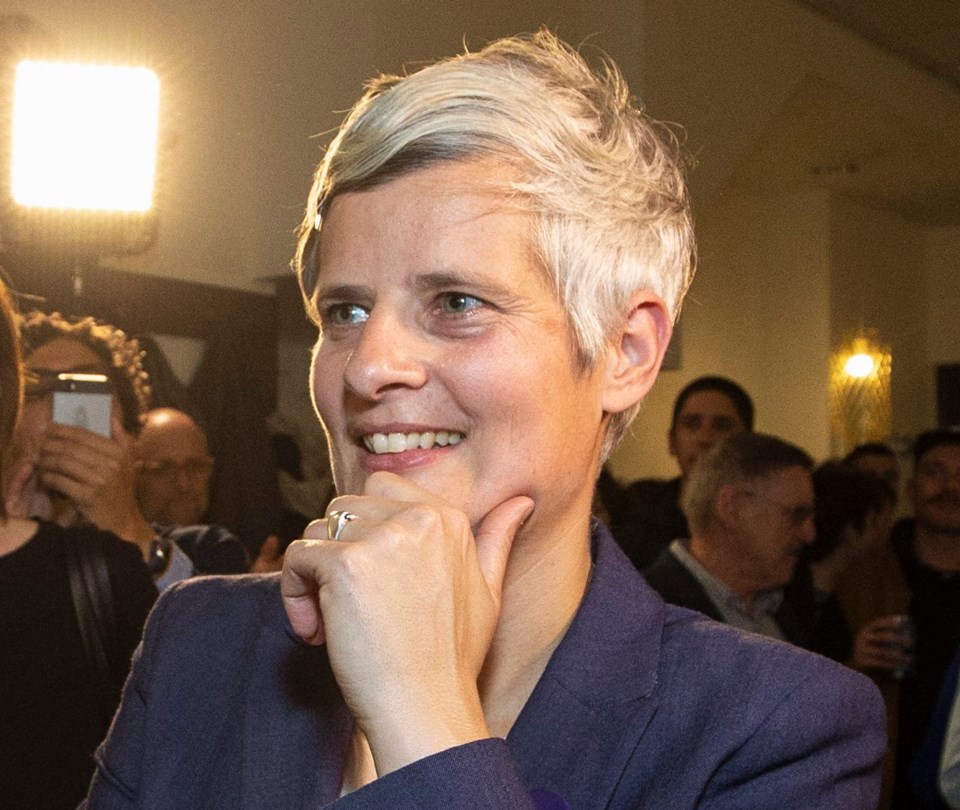A recent town hall meeting convened by Victoria city council turned ugly in a hurry.
Speaker after speaker complained about open drug use in the urban centre, human waste on sidewalks, harassment of business owners, and unrelenting traffic congestion. Bike lanes, in particular, were a recurring source of frustration.
But the most revealing complaint was that council often seems preoccupied with matters that lie far outside the purview of a municipal government.
One woman noted that Mayor Lisa Helps flew to Alberta to check out the oil industry when she should have been taking care of business at home. And earlier in the year, council considered suing the oil industry, an utterly pointless scheme if ever there were one.
Yet a town-hall meeting in Vernon this month brought out many of the same concerns.
Residents felt their urban centre was being destroyed by the unwillingness, or inability, of the town council to assert control. Discarded needles, homelessness, streets used as latrines, all were cited as evidence that lassitude had overtaken city hall. I’m guessing you would get a similar reaction in many towns across the province.
This is the point. Yes, too many of our local officials waste time posturing instead of governing. But maybe that’s because the complaints we want dealt with are beyond the power of municipalities to confront, at least in their present form.
A somewhat similar situation occurred in the health sector 30 years ago. After decades of bloated expenditures, both the federal government and the provinces called a halt.
And the axe fell most heavily on the largest area of public spending — health care. Far-reaching economies were sought, particularly in hospitals.
But an obstacle quickly arose.
In B.C., 700 separate agencies delivered health services. Few, if any, were large enough to wrap their heads around the changes being demanded. They had not the necessary capacity because, for all their good intentions, they were remnants of an archaic system cobbled together over the preceding century.
The solution adopted in B.C. and most other provinces was to create a handful of regional health authorities that, both individually and collectively, would be able to assemble the necessary machinery for planning and control.
And here the problem confronting municipalities comes into focus. There are 163 local governments in our province, some of them representing fewer than 100 residents.
And they, too, are remnants of an earlier era. Indeed, most have the same basic responsibilities and powers as did civic councils when Sir John A. Macdonald was prime minister.
As a result, they are not equipped to deal with novel crises such as endemic drug abuse and homelessness. They have neither the power, nor the resources, to take on such formidable challenges. So instead, they fiddle while Rome burns.
The solution seems obvious.
The sheer helplessness of municipalities, made clear by those meetings in Victoria and Vernon, cries out for change.
Most urgently, a provincewide reconstruction of our local government system is required. The purpose is twofold.
First, we need municipalities large enough to attract top-level planners who bring wider knowledge and experience to bear. That can be done only through some form of amalgamation. I hate to pluck a dead parrot, but Greater Victoria, with its 13 local governments, would be an excellent place to start.
Second, we have to do away with the multiplicity of council borders that stand in the way of region-wide solutions. When you have 13 different zoning schemes, property tax systems, building regulations and all the rest, you cannot begin to think more broadly.
I fully recognize the immense political difficulties that stand in the way of such a reconstruction. Yet it is abundantly clear that our local governments, narrowly focused and under-resourced as they are, will never keep pace with the growing hazards of modern life.
If nothing is done, all we’ll get are good intentions, and everyone knows where that road leads.



